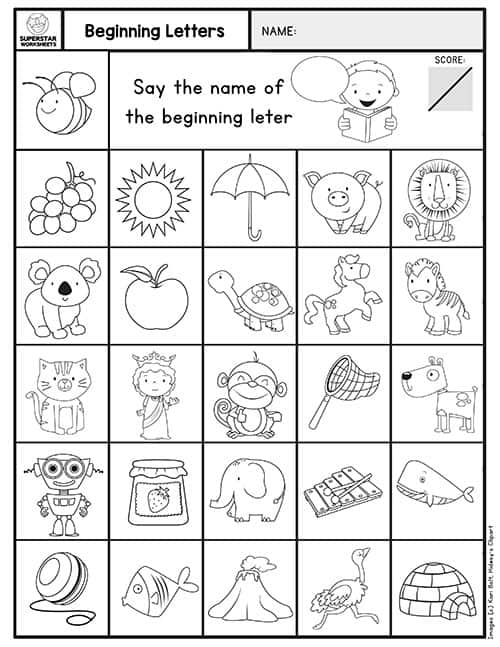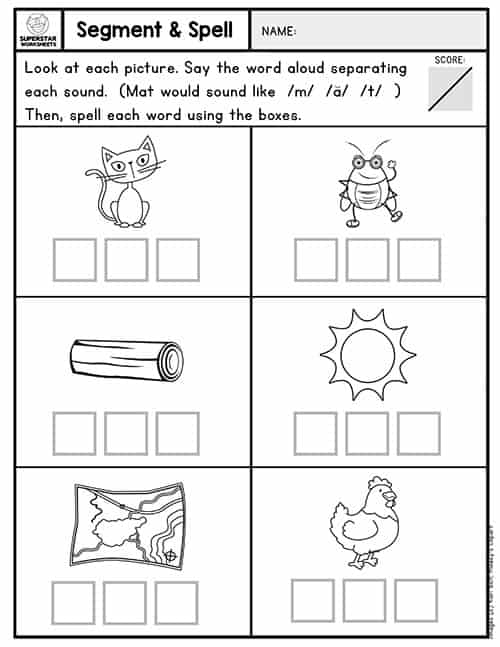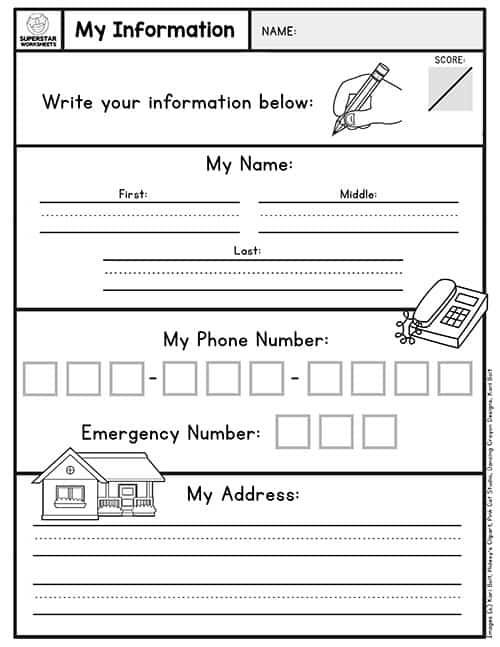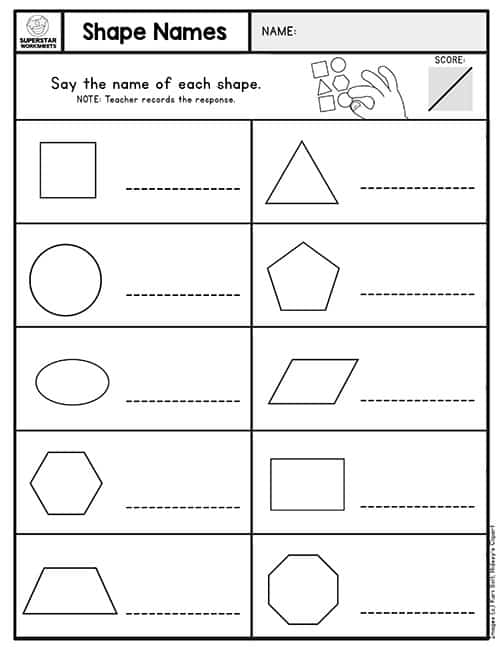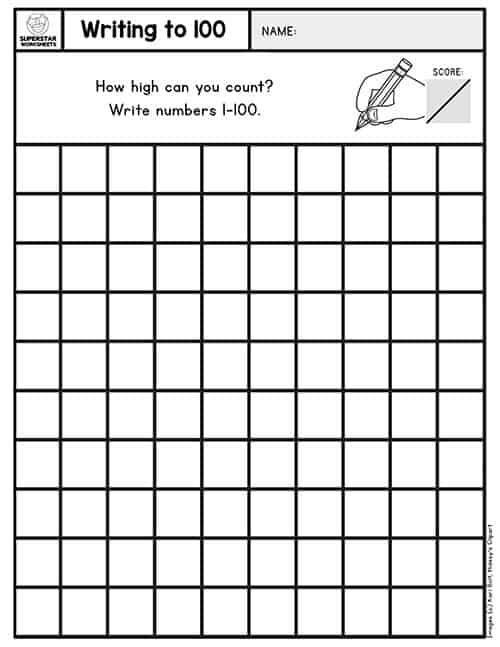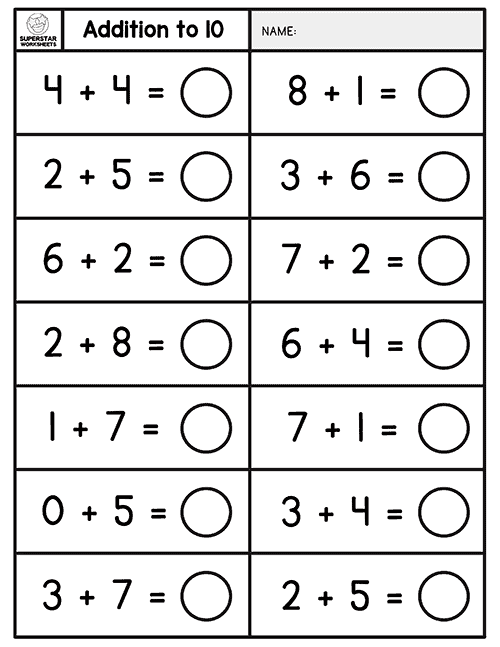Kindergarten Assessment Checklist
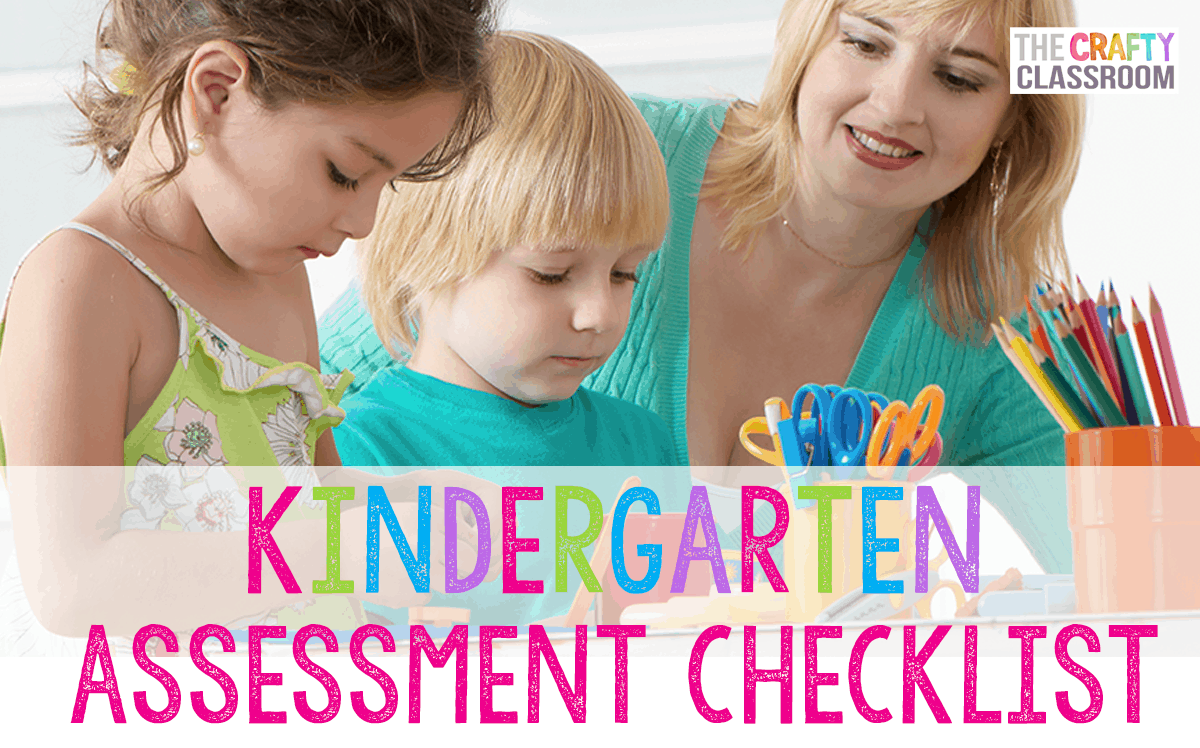
Kindergarten is an important step in childhood and education. It marks the beginning of formal education. However, what should kindergarten students know? How can you know if your child learned enough during kindergarten. These are common questions for homeschool parents. So, we break down the how, why, and when to perform kindergarten assessments in your homeschool.
Why Do a Kindergarten Assessment?
What comes to mind when you hear the word assessment? You are probably conjuring up visions of final exams or standardized tests. However, there are many types of assessments. Kindergarten assessment is used to demonstrate progress. They are not like standardized tests. These are easy, and fun activities that your child can complete to demonstrate mastery. More importantly, you can easily see where your child needs some help. Both sides of an assessment are essential for a good education.
When to Do a Kindergarten Assessment
There are several ways to do this. The answer is do what works for your homeschool and child. Testing is a stressful topic, but tests do not have to be stressful. Remember to look at this as a measure of progress not a pass/fail situation. Saving assessments can be helpful, because they allow you to look back, compare, and see the progress made. No matter how you plan to use a kindergarten evaluation, be sure to do it when you are your child are feeling refreshed, rested, and not hungry! Here are a few options for your homeschool:
- Give the same test at the beginning and end of the year to measure progress and growth.
- Use as an end of year evaluation to drive curriculum choices for next year.
- “Pre-test” a soon to be kindergartner so you know where he stands before starting school work.
- Administer the same evaluation mid-year and end of year. Use the mid-year test to tweak the second half of the year. That way you are sure to hit the areas that need more attention.
What Subjects should Kindergartener know?
The sky is the limit in homeschooling, however that doesn’t mean you need to test your child in every subject! Early education assessments focus on math, reading and writing. These core subjects are the basis of all future learning. So, you may be learning about science, history, and music, too, but stick with the core subjects for your evaluation.
Language Arts Topics to Assess
The language arts comprise reading, writing, listening, and speaking. In kindergarten, we focus on reading and writing. Writing does not just mean writing stories. It is primarily handwriting and letter formation at this point. Reading includes sight words, sounds, and letter recognition. Here are the main topics to assess for your child:
- Letter recognition
- Initial consonant sounds
- Short vowel sounds
- Long vowel sounds
- Sight words
- Rhyming words
- Consonant sounds
- Syllables
- Segmenting/spelling three letter words
- Short creative writing
- Basic information—name, phone number, address
- Completing a sentence
- Writing capital and lowercase letters
Math Topics to Assess
Like language arts, it is important to focus on the basics. Ensure that your child has mastered the foundations. Make the assessment fun and simple to understand. Here are some basic topics to cover in your evaluation:
- Number work recognition
- Numeral recognition
- Shape recognition
- Measurement
- Counting
- Numbers to 100
- Basic addition
- Basic subtraction
However and whenever you administer these assessments, keep in mind that all children develop at different rates. This is especially true in the early years. Make sure your child knows that you are focusing on what she does know, not on what she still needs to learn!
Would you like a FREE guide to assess your child for Kindergarten? Our free kindergarten assessment tests will help you determine any gaps in your child’s education, plus, it’s a great tool to show growth over the year!
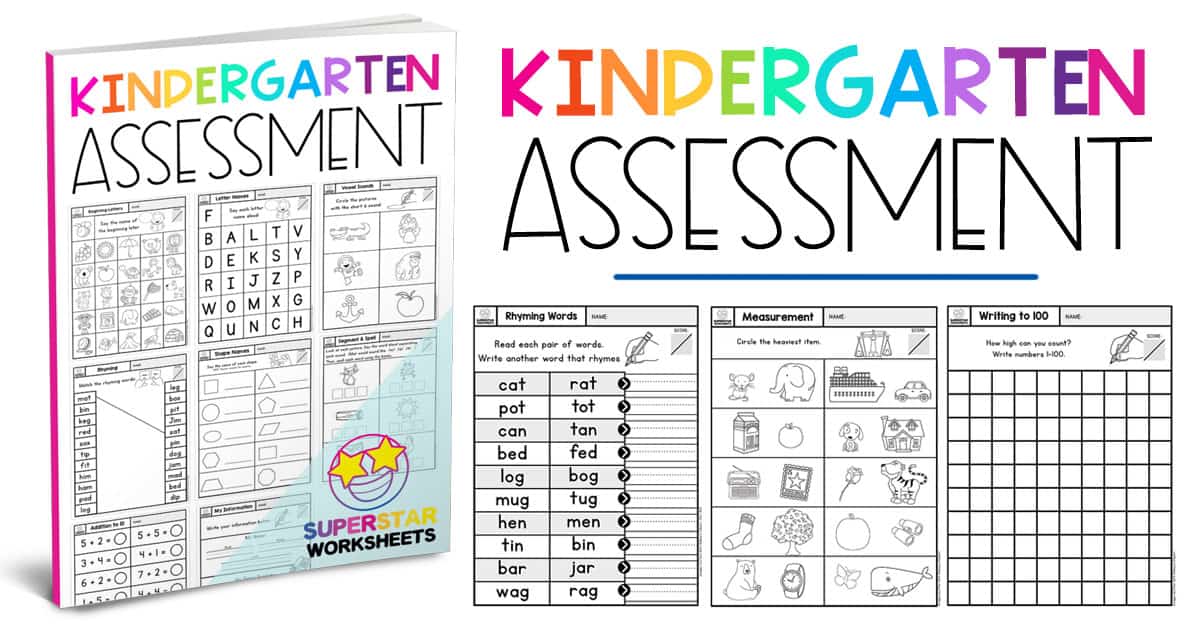
These kindergarten assessment printables are great for the beginning of the year and end of the year testing. If you find your student needs extra practice on any of these concepts check out our free worksheets, or try our Kindergarten Reading & Language Arts Program or our Complete 36-Week Interactive Math Curriculum.

